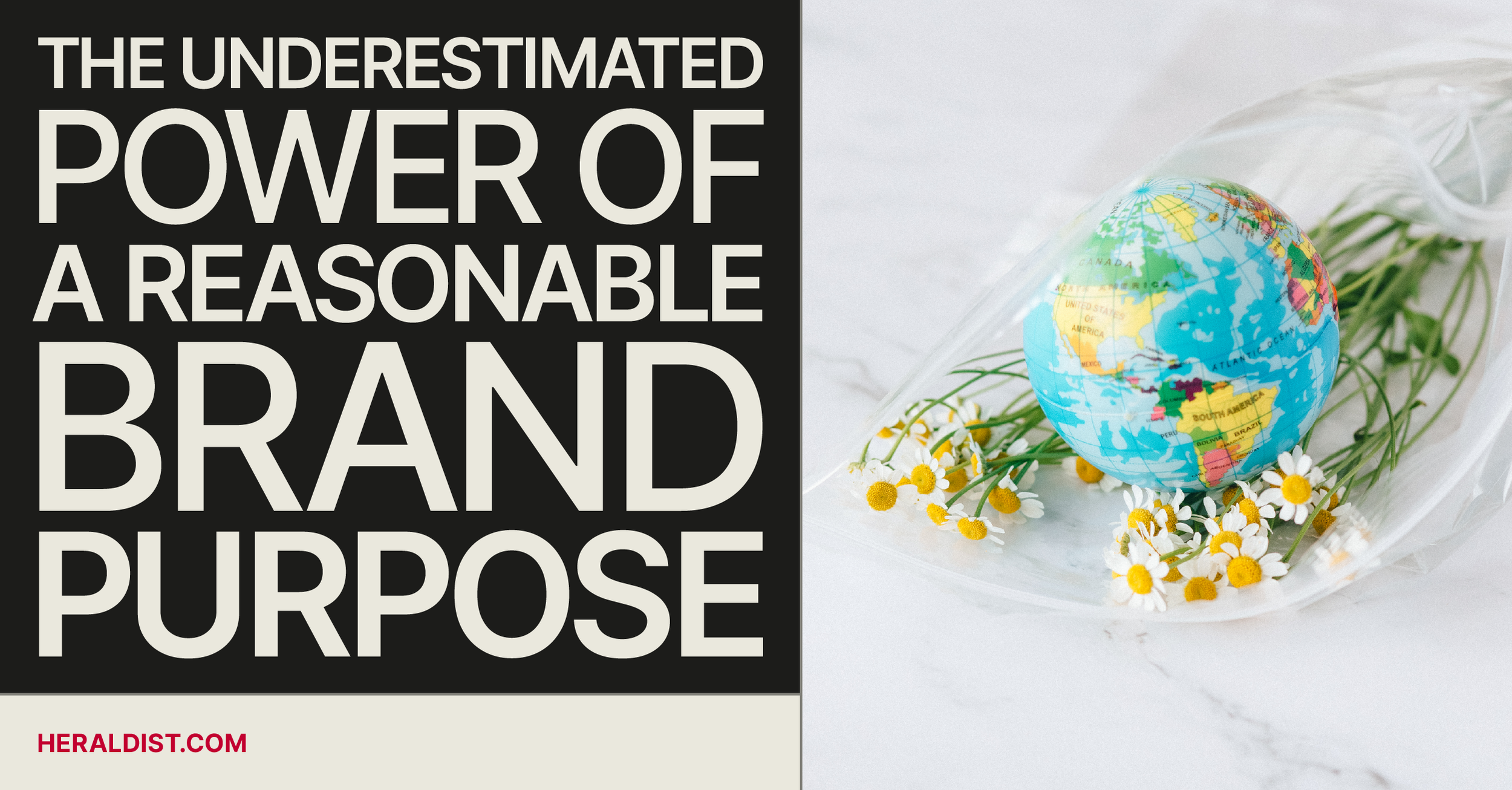The Underestimated Power of a Reasonable Brand Purpose
Having a brand purpose has become crucial to engage and stand out. Some brands have found success by prioritizing high ideals, while others have not.
Let’s have a moment of silence for H&M, [deep breath] … the champion greenwasher, and their “Conscious line” biggest failure. More details here.
However, having a brand purpose does not guarantee success for a company.
The once-sincere notion of a brand purpose has morphed into an unattainable ideal for many, a lofty aspiration that appears grandiose but needs to be more connected to the core values and actions of the company.
People create brands to satisfy the complex needs of other people. In the current era, one of the most pressing needs is to save the world. Sure, it's a combination of need and duty. As individuals and brands, we have the urge and is expected of us to address this need.
Just like in therapy, bringing awareness alone is not enough, brands need to actively seek, develop, or acquire the proper tools to work towards saving the world.
However, many brands overlook the initial step and hastily adopt societal missions and ideals, such as sustainability, inclusivity, and mental health initiatives, without having integrated this mission into their product/service.
On top of that, brands often mistake one-time communication tactics for their unique identity. Many brands fail to understand that by doing this, they are only blending in and moving away from their unique selling proposition.
I wonder what has fooled us all this time into thinking that a brand's significance and relevance to its audience is directly proportional to the size of its purpose.
Mark Ritson says it better than me: “When we get to brand purpose, we go too high, we reach too far. We’ve jumped off the benefit ladder.”
I think we jump off the benefit ladder out of fear that the brand we're building isn't bombastic enough and it doesn't embody that ideal extrovert that Susan Caine mentions in her book “Quiet, the Power of Introverts in a world that can’t stop talking.”
In the competitive world of advertising, the word ordinary makes us uneasy. It can be difficult to accept that brands can have “only” reachable goals.
We often undervalue the importance of a sincere purpose that doesn't aim to save the world, and that's okay. Maybe not this time.
It's not necessary for every brand to be a hero, but all brands should aim to be practical and realistic in their approach and product offerings to achieve their best.
By Manuel Dospina

